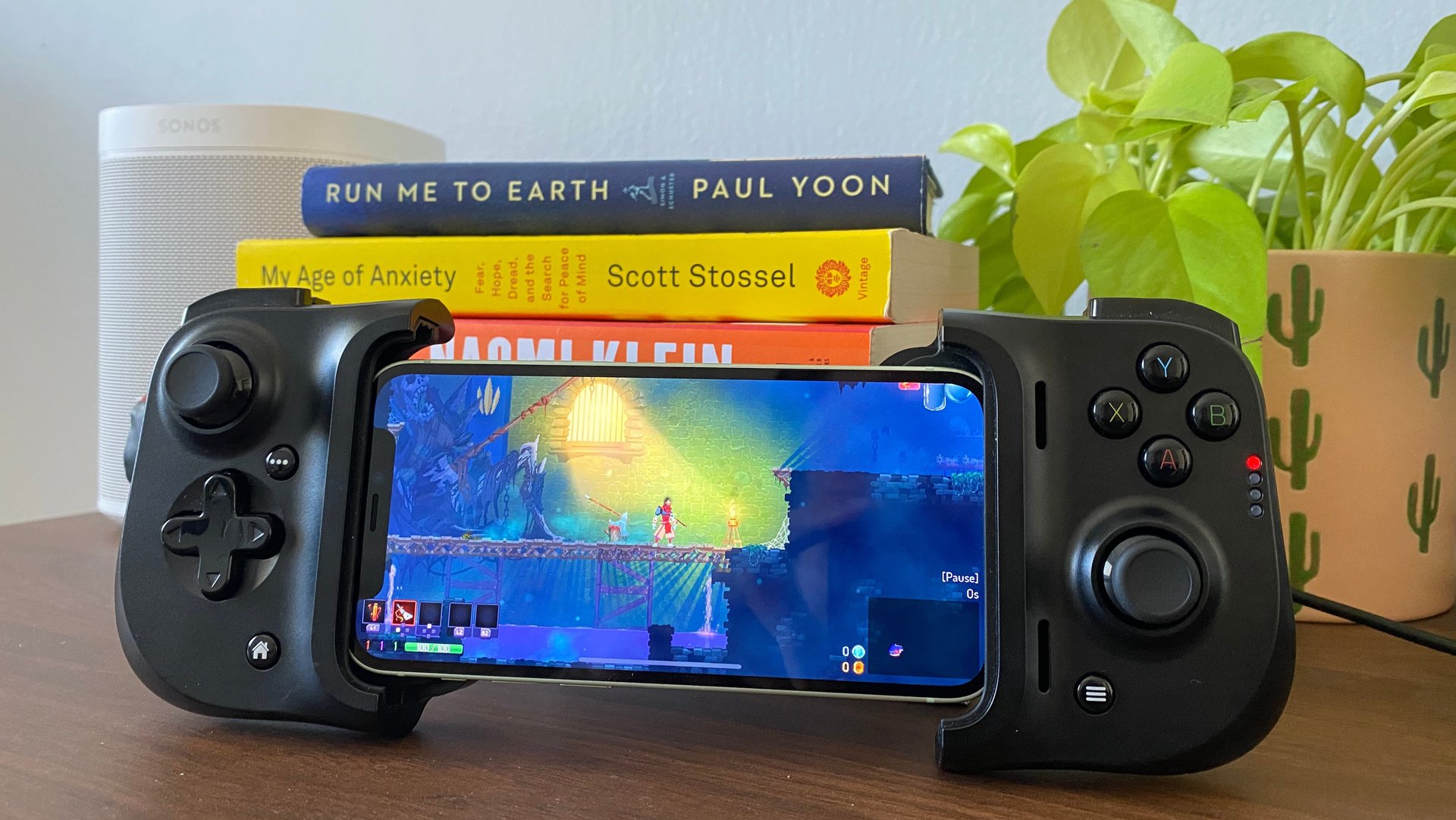The Razer Kishi Is a Godsend for Cloud Gaming, at Least Where It’s Supported
Razer Kishi (iPhone) | $90 | AmazonRazer Kishi (Android) | $58 | Amazon

Suggested Reading
Before the pandemic, I had plenty of excuses for never tackling my growing stack of games. The lofty goal of finding hours to sink into Red Dead Redemption 2 or The Last of Us seemed attainable when I could chalk my lack of time up to commutes, outings with friends, and everything else that kept me on my feet and out of the house. A year into lockdown, though, whenever the itch emerges to dive into a game or two, I rarely find myself reaching for my Switch or PS4.
Related Content
Instead, I end up playing through one of the many games I’ve downloaded to my phone over the years. Like my PlayStation queue of games I need to play, I’ve got a huge backlog of iOS games I’ve purchased over the years, usually as they go on sale, that I hadn’t touched before last March. After hours of aimlessly scrolling Twitter and Instagram, I finally dove into my games folder and tried my hand at a few titles. At first, I mostly stuck to roguelike card games, since I didn’t have to devote too much time to a session. After spending countless hours cycling through Slay the Spire, beating Meteorfall and Solitairica with multiple classes, and completing Deck ‘Em, I wanted to try something new.
Eventually, I found my way to /r/iOSgaming, where mobile gaming enthusiasts gather to talk about their favorite games, ask for and share recommendations, alert others of game sales, and tease upcoming titles. On a site full of unpleasant communities, it’s a refreshing home for passionate mobile gamers to talk about the games that soak up their screen time and bring a little bit of joy to an often dreary time. Looking for a good rundown of interesting games? There’s a weekly thread for that. Maybe you’re searching for the perfect time-killing RPG. There’s a thread for that, too.
Around the same time, I received a Razer Kishi mobile controller for testing, so I turned to the subreddit for some controller-friendly recommendations. After checking out this thread and this site for good games with MFi controller support, I gave a bunch of different games a shot. With console ports like Stardew Valley, Hyper Light Drifter, Bastion, Dead Cells, and countless others, all available in addition to platform originals, there’s lots to choose from when you’re looking to bring a Switch-like experience to your smartphone.
The Kishi works great for these games, too. To set it up, you tilt your phone sideways and dock it into the controller via the Lightning port. It’s a simple process, though, with my iPhone 12 Mini, the Kishi’s controller felt a bit less sturdy than my old 11 Pro. Flimsiness aside, though, the controls all work smoothly and the buttons feel responsive without being too clicky, though they’re slightly on the mushy side.
It even works with Google Stadia, so you can sneak your way through a yacht party in Hitman without booting up the ol’ console. That experience is pretty straightforward, too—if you’ve played any PlayStation or Xbox games in recent years, you won’t have much trouble playing a Stadia game with the Kishi. If you don’t go the cloud gaming route, the Kishi still brings a near console-like experience to a device you’re already carrying with you, providing you a familiar set of controls to fiddle around with. There’s even a Lightning port for you to keep your phone charged during longer sessions.
The problem doesn’t lie in the hardware, though. iOS games still require touch support, even if they’re best played with a controller. As a result, games can’t fully embrace a controller-forward interface, leaving you with large buttons that take up huge chunks of the screen, or elements that can’t be selected via the controller, despite having one connected. And in games with well-implemented support for the hardware, the controls may not be explained in-game, so in some cases, you might have to just learn as you go.
In instances where the controller enhances the experience, such as in Stardew Valley, Sayonara Wild Hearts, or Dead Cells, it’s easy to recommend the Kishi. Although iOS has support for PlayStation and Xbox controllers, the Kishi’s compact form factor allows you to stuff it in a bag without taking up too much room, and its dock-style body makes it easy to use on-the-go.
Unless you’re a die-hard iOS gamer, the Kishi’s $90 price tag is a tough sell. But if you’re dead seat on the best way to play a few levels of Dadish on your lunch break, the Kishi is worth the splurge for a pocketable console that won’t weigh down your bag.
